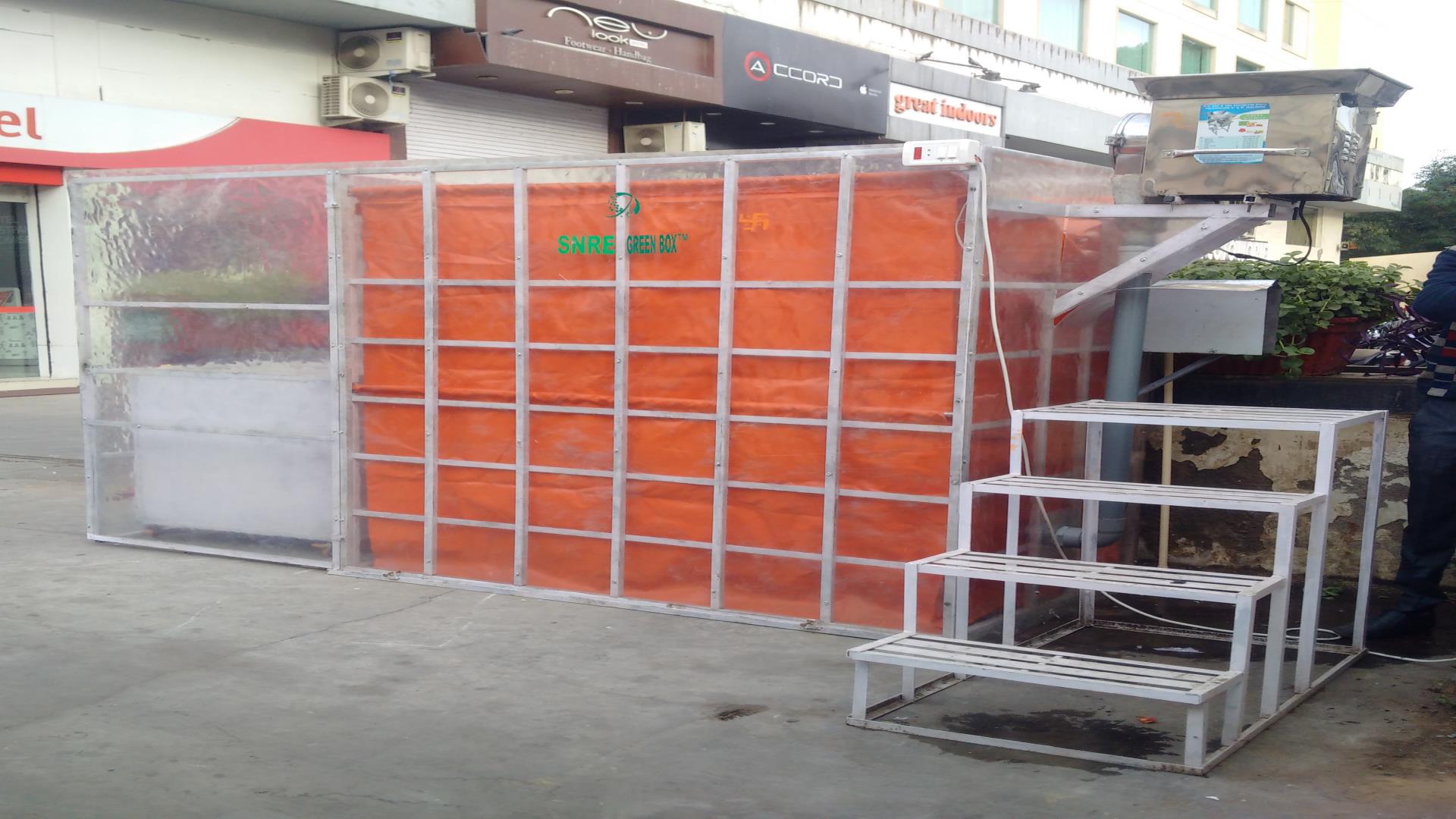
SNRE Green Box(R) Compost Unit
Compost is decomposed organic material. Compost is made with material such as leaves, shredded twigs, and kitchen scraps from plants. To gardeners, compost is considered "black gold" because of its many benefits in the garden. Compost is a great material for garden soil.
Compost is rich in nutrients. It is used, for example, in gardens, landscaping, horticulture, urban agriculture, and organic farming. The compost itself is beneficial for the land in many ways, including as a soil conditioner, a fertilizer, the addition of vital humus or humic acids, and as a natural pesticide for soil. In ecosystems, compost is useful for erosion control, land and stream reclamation, wetland construction, and as landfill cover.
The process of composting requires making a heap of wet organic matter (also called green waste), such as leaves, grass, and food scraps, and waiting for the materials to break down into humus after a period of months. However, composting also can take place as a multi-step, closely monitored process with measured inputs of water, air, and carbon- and nitrogen-rich materials. The decomposition process is aided by shredding the plant matter, adding water and ensuring proper aeration by regularly turning the mixture when open piles or "windrows" are used. Earthworms and fungi further break up the material. Bacteria requiring oxygen to function (aerobic bacteria) and fungi manage the chemical process by converting the inputs into heat, carbon dioxide, and ammonium.